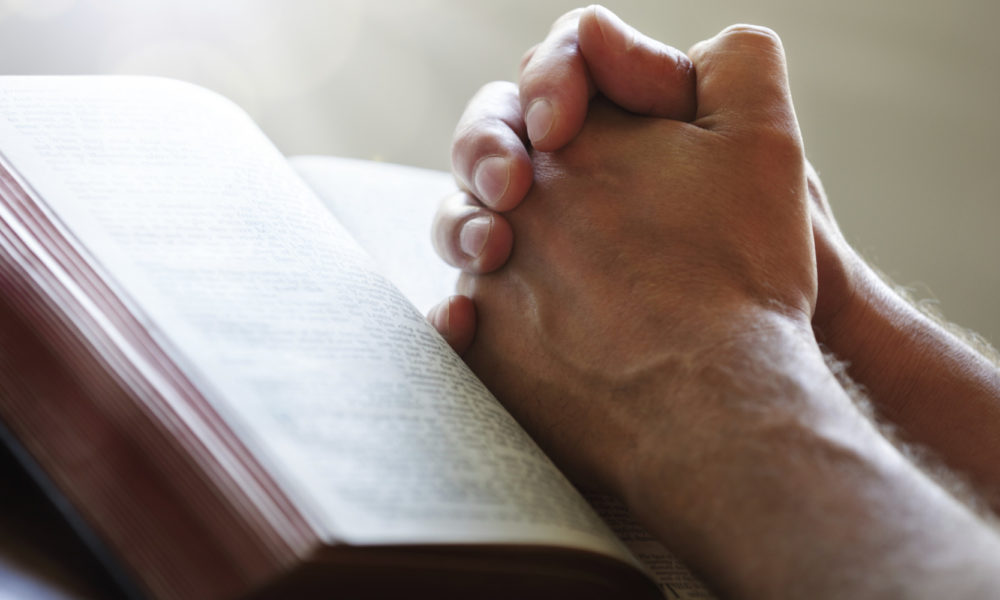If God desires our well-being, why doesn’t he always grant prayers for healing? “There’s no doubt about your diagnosis,” the doctor told me. I squirmed in my chair as I heard the numbers: according to the calculus of medical predications, my young children would most likely lose their dad in their childhood. It’s an incurable, lethal cancer. But as a Christian, I wondered – should “incurable” really be part of my vocabulary? What about God’s power and prayer? “Is anything too hard for the LORD?” (Gen. 18:14) When God told ninety-year-old Sarah that she would conceive, she laughed. At times I have been tempted to do the same. Yet the witness of scripture is resolute: if it’s a matter of God’s power, nothing is “too hard” for the Almighty.
But answering that question leaves many more unanswered. Nothing is too hard for the Lord, but the Psalmist still cries out in accusation: “In the course of my life he broke my strength; he cut short my days” (Ps. 102:23). The Lord is almighty, but that doesn’t give us the problem-solving God that we want.
While in the hospital awaiting a stem cell transplant, I began to read an essay by C.S. Lewis that states the problem directly: “Petitionary Prayer: A Problem Without an Answer.” How are we to present our petitions to the Lord of the universe? On the one hand, Jesus tells us to pray with astonishing confidence that God will answer our petitions: “If two of you agree on earth about anything you ask, it will be done for you by my Father in heaven” (Matt. 18:19). On the other hand, Jesus doesn’t seem to display this confidence that his requests will be granted. “My Father, if it is possible, let this cup pass from me; yet not what I want but what you want” (Matt. 26:39). Indeed, Jesus ultimately drank from the cup of suffering that he dreaded. What gives? Lewis writes, “It is as if God demanded of us a faith which the Son of God in Gethsemane did not possess, and which if He had possessed it, would have been erroneous.”
Within hours of reading the essay, I received a high-dose of a toxin derived from mustard gas designed to obliterate cancerous cells (as well as healthy cells). This “medicine” would bring me to the edge of death. In that moment questions about petitionary prayer were painfully real: why would God want to take me away now, now that I was a husband, and a father of two young children? How could it not be God’s will that I would be healed? Would this not be a perfect time to show his mighty and merciful power?
I don’t know why God allows cancer. But I do know that we should pray in the face of illness and death. And while I’ve appreciated the many prayers for healing that I’ve received, I sense that often they could be enhanced by combining them with prayers of lament. For although the world is in God’s hands, things are not the way they are supposed to be. Jesus wept for Lazarus, even though Jesus knew that healing would come for him. And we should weep before God as well, even as we hope in God’s eventual healing. We can join the Psalmist in praying “How long, O LORD? Will you forget me forever?”
But why doesn’t God always will to fix that which we want fixed? I don’t know. But in our self-help culture, I sense we are blinded to the nature of God’s will because of the way in which we’ve come to expect the Christian life filled with the glow of a “better life.” This is not the message of Christ crucified. As Paul understood well, while Christians should not seek suffering for its own sake, we do find ourselves on a cross-shaped path in which we are “sorrowful, yet always rejoicing; as poor, yet making many rich; as having nothing, and yet possessing everything” (2 Cor. 6:10). The God of Jesus Christ has not promised to spare us suffering — even suffering that seems senseless. But there is a promise. God has promised to be with us, assuring nothing can separate us from his faithful love, not even death.
So, pray for those with “incurable” illness — in both petition and in lament. We can’t solve the puzzle of why God allows cancer. But we do know that God welcomes our grief and confusion into his presence. And rather than just asking for a “quick fix,” we need to join Jesus in praying “thy will be done.” Whether or not healing comes now, we pray for the strange work of God to be manifest on the path of illness, even if our desires for a glowing and tidy middle-class life have to be put on the cross.
Click here to view original web page at www.huffingtonpost.com
